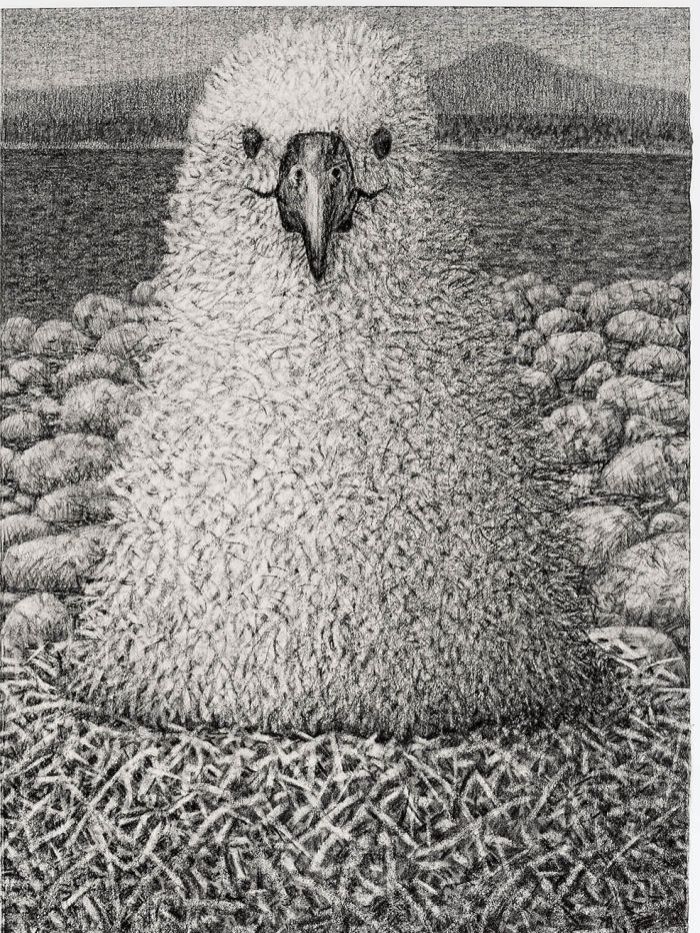
Charcoal drawing of a Shy Albatross chick, artwork by Richard Wastell
Claire Mason (Institute for Marine and Antarctic Studies, Battery Point, Tasmania, Australia) and colleagues have published in the journal Marine Ecology Progress Series on effects of heat stress on chicks of the globally Near Threatened Shy Albatross Thalassarche cauta. The open-access paper is to appear within a themed issue “How do marine heatwaves impact seabirds?” along with 12 other publications.
The paper’s abstract follows:
“With increasing air temperatures and frequency of extreme weather events predicted under climate change, ground-nesting seabird chicks are vulnerable, enduring months at a fixed and often completely exposed nest site, with limited behavioural capacity to reduce heat load. Endangered [in Australia] shy albatross Thalassarche cauta breed in temperate southern Australia, a region warming at about 4 times the global average. We used a remote-monitoring camera to obtain the daily status for ~150 nests each season for 7 seasons (2014–2015 to 2020–2021; 1036 nests in total), allowing clear determination of the date of chick death. We explored local weather conditions associated with chick mortality. We observed 68 downy chick deaths (55 %) across a 30-d period in 2018. This period corresponded with anomalously high and prolonged wet bulb globe temperature, an index for heat stress. We show that shy albatross breeding attempts are vulnerable to hot weather conditions and define extreme heat stress conditions for this species (>20° wet bulb globe temperature). Documenting the relationship between chick survival and heat before future catastrophic events occur gives managers time to plan for future heatwaves by developing climate adaptation strategies for seabird populations.”
With thanks to Verena Gill.
Reference:
Mason C. 2023. Shy Albatross Thalassarche cauta Conservation under Climate Change. PhD thesis, University of Tasmania, Hobart. 135 pp.
Mason, C., A.J., Alderman, R. & Lea, M.-A. 2024. Shy albatross Thalassarche cauta chick mortality and heat stress in a temperate climate. Marine Ecology Progress Series doi.org/10.3354/meps14494.
John Cooper, Emeritus Information Officer, Agreement on the Conservation of Albatrosses and Petrels, 14 March 2024

 English
English  Français
Français  Español
Español